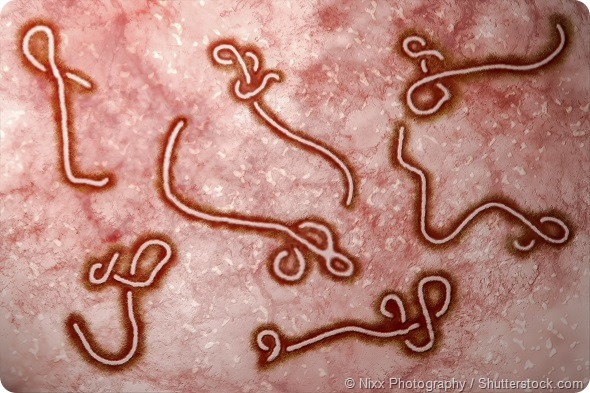This morning Pauline Cafferkey, the nurse who survived infection with the Ebola virus, was airlifted to an isolation unit at the Royal Free Hospital in London after the Ebola virus was detected in blood samples.

In March 2014 the Ebola virus was detected in West Africa; by the summer thousands of people had died from Ebola infection and the situation was declared an International Public Health Emergency by The World Health Organization. Months of distressing footage and alarming statistics were to follow and 11,000 people died during the outbreak.
Gradually, Ebola reports were tempered with some hope as results from a clinical trial of an Ebola vaccine indicated 100% success among people vaccinated immediately, and development of a rapid test for the virus allowed instant diagnoses to be made.
More recently, news relating to the Ebola virus has continued to be promising. Last week was the first week since the epidemic began during which no new cases of Ebola were reported and this week a clinical trial of a second Ebola vaccine began.
However, questions about the long-term effects of Ebola infection were raised this morning when Ebola survivor Pauline Cafferkey was readmitted to an isolation unit at the Royal Free Hospital. Pauline Cafferkey volunteered with Save the Children in Sierra Leone during the height of the most serious Ebola epidemic to date.
Shortly after her return to the UK in December 2014, she became critically ill with Ebola virus infection. She was treated with an experimental drug and given blood plasma from another aid worker who had survived Ebola infection.
After 3 weeks, she was declared free from the virus and discharged. Earlier this week Pauline was admitted to the Queen Elizabeth University Hospital in Glasgow.
When Ebola was detected in her blood she was transferred to an isolation unit at the Royal Free Hospital in London as a precautionary measure. Dr Emilia Crighton, Director of Public Health at NHS Greater Glasgow and Clyde emphasised:
The risk to the public is very low. In line with normal procedures in cases such as this, we have identified a small number of close contacts of Pauline's that we will be following up as a precaution."
Dr Ben Neuman, a virologist from the University of Reading also confirmed that it was unlikely that the virus detected in Pauline was still infectious. He explained that:
Once the virus is removed from the blood, it tends to retreat into the hard-to-access components of the body. It'll hide in the back of your eyes or breast milk".
Since Pauline has recovered from the virus once, the chances are that she will do so again. However, uncertainties are bound to remain. Ebola survivors have suffered eye and joint problems and fatigue, but little is known about the long-term implications of contracting Ebola.